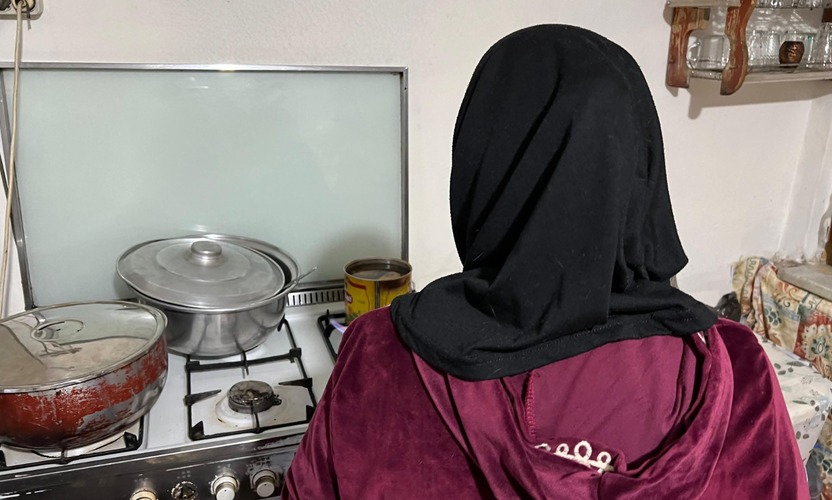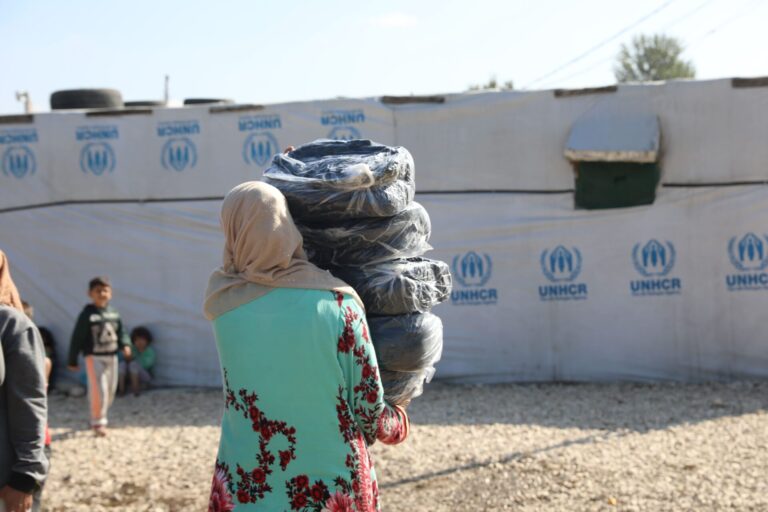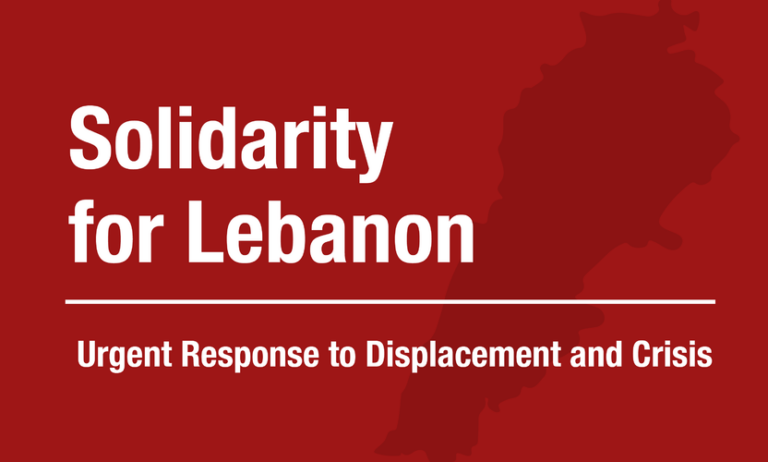Disclaimer: This website is under development. Content and features may change, and some information may be incomplete or inaccurate. Thank you for your patience.
Nesreen’s life has been shattered by the brutal realities of war, a journey marked by endless displacement, overwhelming loss, and an unyielding search for a sense of stability. Her story unfolds with quiet reflection, yet the weight of her experiences echoes deeply in every word she speaks.
“I lived through the war in Syria for four years,” Nesreen begins, her voice soft yet heavy with the burden of memory. “Due to the challenging security situation, we fled to Jordan, where we stayed for four years. But when we returned to Syria, we found that everything had worsened. We had no choice but to come to Lebanon, to the south, to Nabatiyeh. It’s been nine years since then, and now, once again, I find myself displaced. This is my third time being forced to leave my home.”
Her voice falters as she recalls the most recent chapter of her journey. “Currently, I am staying with my cousin in Majdal Anjar,” she shares. “I arrived about 40 days ago, on October 25, 2024. It wasn’t easy. We spent two days under constant shelling, living in fear, unable to leave. One by one, everyone in our area began to flee. Soon, no one was left behind. When we finally found a way to escape, the taxi cost us $200 to take us from the south to the Bekaa Valley. We spent the entire day on the road, not knowing if we would make it to safety.”
The fear and uncertainty that accompanied her departure are still raw in her mind. “Since the 23rd of September, we had been hearing explosions in the distance, but when we left, there were no warnings, no alerts. Suddenly, the shelling was so close—it felt like it was happening right next to us. The situation was indescribable. Our entire area was destroyed, and as we fled, we saw the devastation all around us. The roads were lined with the remnants of everything we once knew.”
The weight of leaving her home behind is palpable in her words. “It’s still painful,” she says, her voice cracking. “Leaving behind our home, everything we had… My heart aches with grief. We left our livelihoods, our lives there, all behind, and we don’t even know if any of it is still there or if it’s been destroyed.”
Despite the overwhelming emotions, Nesreen tries to stay strong for her children. “I have two daughters—one is eight, the other five. They were terrified, trembling with fear. I did my best to comfort them, to distract them from the danger. I didn’t want them to feel the fear that I was feeling. But in the last two days, right before we left, they were especially scared.”
The journey to safety has been an arduous one, with Nesreen and her family carrying nothing but the clothes on their backs. “We didn’t bring anything with us,” she explains. “Thankfully, my cousin and other relatives helped us, offering what little they had. Without them, I would have been out on the streets.”
Even after arriving in Lebanon, Nesreen has faced difficulty in securing aid. “When I first arrived, I registered with several organizations,” she says, her tone tinged with frustration. “But each time I sought help, I received different responses. Sometimes they said they weren’t supporting Syrians, other times they said there was no aid available, or they promised to call me back.”
Her family’s struggle is further complicated by the dire security situation in their hometown, leaving them with no possibility of returning to Syria. “We are not safe in Syria. I need everything—food, financial support, mattresses. We’re a family of four, and we’ve been sleeping on a mattress from my cousin’s children. She’s been hosting us for 40 days, but they are also struggling. It’s not easy for anyone.”
Before the war, Nesreen’s life was far different. “We were comfortable. My husband had a job, and my daughters—one was eight, the other five—were going to school. We were happy, living peacefully, just like any other family.”
But the war shattered that peace. “This war has broken us,” she says, her voice heavy with pain. “It’s made my depression worse. I was already struggling with mental health issues before, but now it’s even harder. The instability, lack of security, and constant uncertainty about the future have been crushing for both me and my husband.”
Nesreen had dreams before the war—dreams she thought were within reach. “I wanted to become a beautician. I signed up for a course at an institute in the south, and I even worked there for a month. But just before the 23rd, a bomb hit near the institute, and I couldn’t go back. That was my dream—to open my own business, to have a better life.”
Now, those dreams feel distant, buried beneath the weight of uncertainty. “I don’t know what to plan for any more,” Nesreen says, a note of helplessness creeping into her voice. “We’re stuck in a cycle of depression, unsure of what to do next. My cousin sees me crying every day. We’re lost, not knowing where we’re headed. Everything feels uncertain, and we don’t know when it will end.”
Despite all this, Nesreen continues to hold onto a glimmer of hope. “We just want the war to end,” she says, her eyes reflecting a deep longing. “We want to go back home, to live peacefully again. There are so many people out on the streets, facing winter and rain, whether they’re Syrian or Lebanese. We’re all humans, all brothers. We hope to receive the support we need. We don’t want to be left to suffer. We just want peace.”
Nesreen’s story is a powerful reminder of the human cost of conflict. Her words carry the weight of a mother who has had to leave everything behind, yet her resilience shines through. Even as she faces a seemingly endless struggle, she holds on to the hope that one day, peace will return and life will begin anew.



